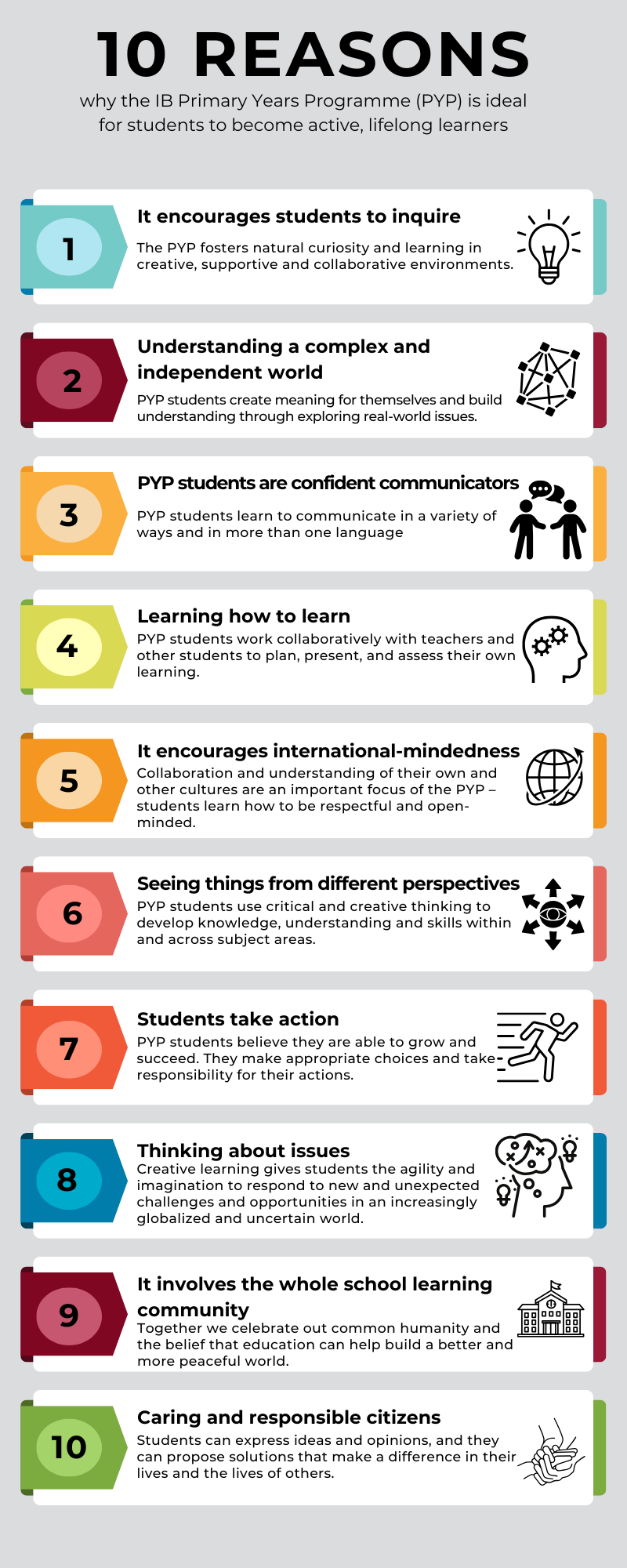The Learner Profile includes ten (10) attributes that are understood to describe an effective lifelong learner. As the guiding light of all IB programs, we intentionally weave learning opportunities that develop these attributes throughout the curriculum. This development of these attributes begins with our youngest learners, however it is understood to be an ongoing process - not a goal to be reached and checked off by year’s end. All constituents are expected to be aware of the Learner Profile, as well as to engage in the purposeful reflection of one’s strengths and areas of improvement within it. (PYP Attitudes have been highlighted in the descriptions below.)
Inquirers We nurture our curiosity, developing skills for inquiry and research. We know how to learn independently and with others. We learn with enthusiasm and sustain our love of learning throughout life.
Knowledgeable We develop and use conceptual understanding, exploring knowledge across a range of disciplines. We engage with issues and ideas that have local and global significance.
Thinkers We use critical and creative thinking skills to analyze and take responsible action on complex problems. We exercise initiative in making reasoned, ethical decisions.
Communicators We express ourselves confidently and creatively in more than one language and in many ways. We collaborate effectively, listening carefully to the perspectives of other individuals and groups.
Principled We act with integrity and honesty, with a strong sense of fairness and justice, and with respect for the dignity and rights of people everywhere. We take responsibility for our actions and their consequences.
Open-minded We critically appreciate our own cultures and personal histories, as well as the values and traditions of others. We seek and evaluate a range of points of view, and we are willing to grow from the experience.
Caring We show empathy, compassion and respect. We have a commitment to service, and we act to make a positive difference in the lives of others and in the world around us.
Courageous (Risk-takers) We approach uncertainty with forethought and determination; we work independently and cooperatively to explore new ideas and innovative strategies. We are resourceful and resilient in the face of challenges and change.
Balanced We understand the importance of balancing different aspects of our lives — intellectual, physical, (spiritual) and emotional — to achieve well-being for ourselves and others. We recognize our interdependence with other people and with the world in which we live.
Reflective We thoughtfully consider the world and our own ideas and experience. We work to understand our strengths and weaknesses in order to support our learning and personal development.


